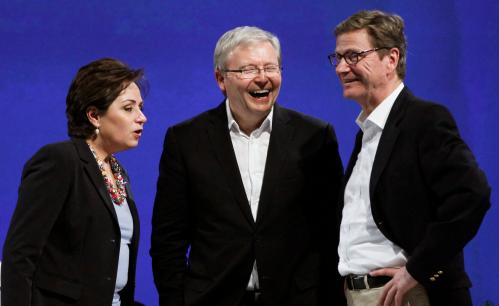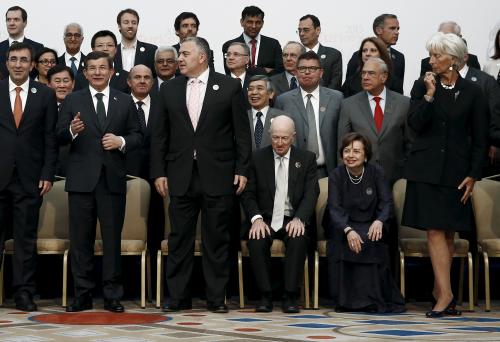This piece was first published by Global Times.
The recently concluded G20 Hangzhou summit met at a troubling time for the global community. In July, the IMF lowered its global growth forecast for 2016 and 2017 to 3.1 and 3.4, respectively. Public support for globalization in many industrial democracies has plummeted. The late June vote by the UK to leave the EU is a major blow to European integration and to economic openness.
These are a few of the strong headwinds this year’s G20 faced. Despite the impediments to removing barriers to economic openness and difficulties in coordinating monetary and fiscal policy, China and other G20 members prepared diligently in preparatory meetings, setting forth ambitious objectives for the future. President Xi Jinping proposed a series of major goals on new mechanisms for macro-policy coordination, steps to advance sustainable development and measures to transform the G20 into a platform for global governance.
China articulated a diverse array of ambitious initiatives, premised on the belief that the G20 can serve as a much more active and powerful institution promoting global growth.
China forward broad statements of principle that are highly characteristic of its diplomatic style. It sees an opportunity to put its own imprint on the transformation of the global economic and financial system, quite possibly believing that its own successes in economic reform can be introduced on a wider scale. In essence, China increasingly envisions itself as an economic leader rather than a follower. At the same time, even as China faults the US for lagging behind in revising global economic governance, it acknowledges that the combined economic weight and reach of the US and China confers a distinctive economic stabilization role for both countries.
However, broad visions of future economic architecture do not resolve the deeper contradictions and policy differences that inhibit lasting economic transitions and impede development of new cooperative mechanisms. Even in a globalized era, the major economies continue to insist that specific national circumstances must take precedence in any proposed policy changes.
China’s disproportionate production of various commodities offers a telling illustration of these issues, as it wrestles with overcapacity and confronts the need for downsizing of its own. China might still characterize itself as the world’s largest developing economy, but it is now much more than that, and this entails special responsibilities as well as possibilities for enhanced leadership.
The G20 members have seen how China envisions steps needed to counteract trade and investment protectionism that have inhibited efforts to again put the global economy on a more favorable and sustainable path.
All participants in Hangzhou recognize that without renewed growth in the major economies and the creation of opportunities for those economies that lag seriously behind, the prospects for international economic order will be increasingly unfavorable, making political and economic cooperation even more difficult. It now remains to be seen with the close of the G20 summit whether for the steps taken will be enough for global well-being and international stability.
The Brookings Institution is committed to quality, independence, and impact.
We are supported by a diverse array of funders. In line with our values and policies, each Brookings publication represents the sole views of its author(s).







Commentary
Op-edWill G-20’s steps be enough for global well-being and international stability?
September 6, 2016